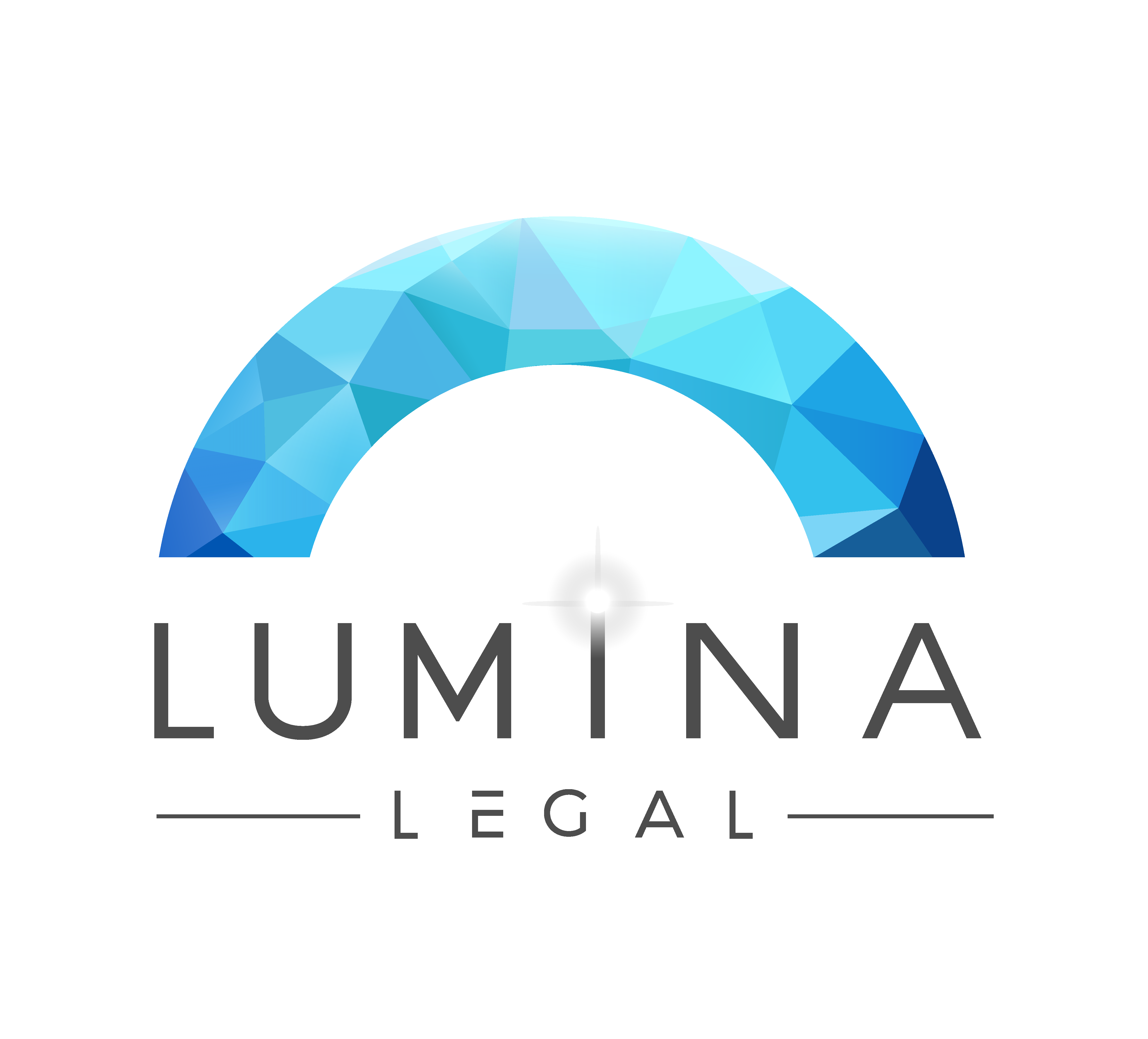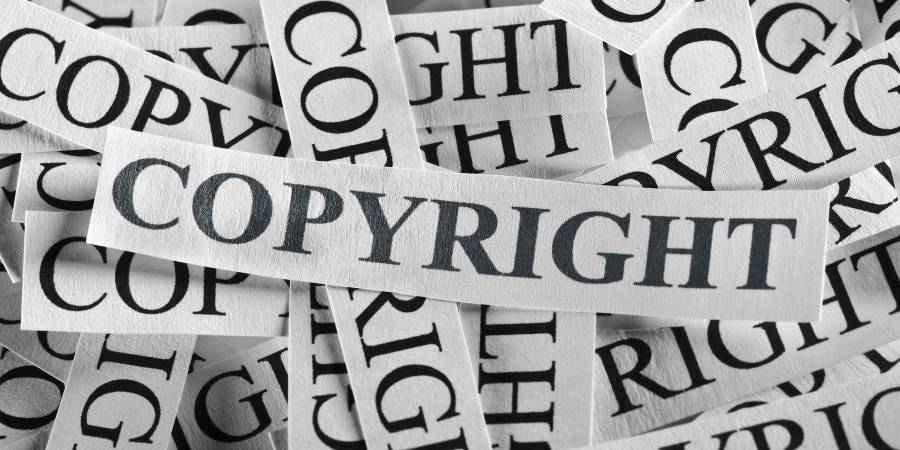In today’s digital age, protecting intellectual property is increasingly important. Whether you are a creative entrepreneur, the founder of a startup, or the owner of an established business, understanding the difference between trademark vs. copyright is crucial to safeguarding your work. Both serve different purposes and offer diverse types of protection.
On the one hand, trademarks protect brands, logos, and slogans that distinguish your products or services from those of your competitors. On the other hand, copyrights cover original works of authorship, such as books, music, art, and software. Both provide legal rights, but it is essential to know when to use each form of protection.
Hi, I’m Rocky, founder of Lumina Legal. In this article, I’ll walk you through the differences between trademarks vs. copyrights, the advantages of each, and how to navigate the intellectual property landscape. Whether you want to register a trademark for your brand or protect your creative works through copyright, we’ll guide you through the process.
Let us dive right in and ensure the protection of your intellectual property.
Trademark vs. Copyright: The Difference Between Trademarks and Copyrights
It is important to understand that trademarks protect brands, logos, and slogans that distinguish your products or services from those of your competitors. A trademark can be a word, phrase, symbol, design, or a combination of these elements. It ensures that consumers can identify and distinguish your brand from others in the marketplace.
Copyright, on the other hand, covers original works of authorship, such as books, music, or art. Copyright protection grants the creator exclusive rights to reproduce, distribute, display, or perform his or her work. The idea behind this is to provide a legal framework to prevent others from using or profiting from your creative efforts without permission.
This way, while trademarks focus on protecting the identity of the brand, copyrights safeguard the actual content or expression of the work itself. Understanding this distinction is crucial when deciding which form of protection is most appropriate for your intellectual property.
Trademark vs. Copyright: Benefits
If we talk about the benefits of trademarks vs. copyrights, it is essential to mention that both are invaluable for any business. Trademarks ensure brand recognition, trust, and distinction in the marketplace, while copyrights safeguard creative expressions, encouraging innovation and originality.
Let us delve into the countless advantages that these legal safeguards offer your brand and your creations.
Trademark Benefits
Trademark registration offers several advantages that can help you protect your brand and your business. Some of the main advantages of trademark registration are:
- Exclusive Rights: By securing exclusive rights to your trademark, you create a protected space for your brand to thrive. This exclusivity ensures that competitors are barred from using a confusingly similar mark that might dilute the distinctiveness of your brand, potentially leading to consumer confusion.
- Brand Protection: Stepping into the realm of trademark registration not only bestows upon you the coveted legal right to your brand identity but also acts as a potent shield, providing robust protection against any attempts by others to infringe upon your established mark.
- Enhanced Brand Reputation: In the vast landscape of competition, a registered trademark emerges as a powerful tool, allowing your brand to stand out amidst the myriad choices consumers face daily. This distinctiveness not only sets your brand apart but also holds the potential to captivate a broader audience.
- Licensing and Franchising Opportunities: It allows collaboration with other businesses, letting them utilize your brand in exchange for royalties or fees. Moreover, the registered trademark becomes a cornerstone in franchise agreements, providing a solid foundation for expanding your business model.
- International Protection: By securing trademark registration, you fortify your brand against potential infringement not only domestically but also across various countries, thanks to the reciprocal agreements established by international treaties.
Copyright Benefits
Copyright registration offers additional advantages. Let us delve into the myriad benefits that come with registering your creative works and maximizing the potential of your intellectual property. Below, some of the advantages of copyright registration are:
- Legal Evidence: Copyright registration serves as a legal mechanism, offering tangible evidence of your ownership over creative works. Beyond the intrinsic protection granted upon creation, having your copyright officially registered enhances your arsenal for safeguarding intellectual property.
- Statutory Damages and Attorney’s Fees: By registering your copyrights, you position yourself to seek statutory damages and attorney’s fees in the event of successful litigation against infringing parties. This strengthens your legal position and broadens the potential damages that can be awarded.
- Record in the Public Database: By registering your copyright, you secure a lasting record in the public database meticulously maintained by the copyright office. This database stands as a tangible testament to your ownership, offering a transparent repository for anyone seeking information about the status of your work.
- Presumption of Validity: The act of registering your copyright signals to the world that your creative work is not only protected but has also undergone a meticulous validation process by the copyright office. This official acknowledgment creates a powerful presumption of the legitimacy and validity of your copyright ownership.
- Prevention of Importation: This move also opens the door to recording your registered work with the U.S. Customs and Border Protection Agency. It equips you with the power to impede the importation of infringing copies into the country, thereby fortifying your intellectual property against unauthorized distribution.
The Essential Role of Legal Counsel in Navigating Data Privacy Laws
Embarking on the intricate journey through the trademark vs. copyright landscape can be a labyrinthine undertaking. In the face of such complexities, the decision to call upon the expertise of a tech transaction lawyer presents itself as a strategic move, offering a multi-faceted shield to safeguard and strengthen your intellectual property rights.
Tech transaction lawyers bring a wealth of resources to the table, making them indispensable allies in the quest for comprehensive protection. These legal professionals conduct meticulous searches, ensuring not only the uniqueness but also the availability of the desired mark or work for registration.
Beyond registration, a tech lawyer’s expertise extends to the development of a comprehensive intellectual property strategy tailored to your specific needs. They provide insightful advice on the optimal methods to protect and enforce your rights, covering facets such as trademark and copyright registration or nuanced licensing agreements.
If you have made it to the end of this article, consider consulting our tech transaction lawyers at Lumina Legal to ensure that you navigate the legal landscape effectively and maximize the protection of your intellectual property. Do not wait any longer; leave us your message, and we’ll help you.


Recent Comments